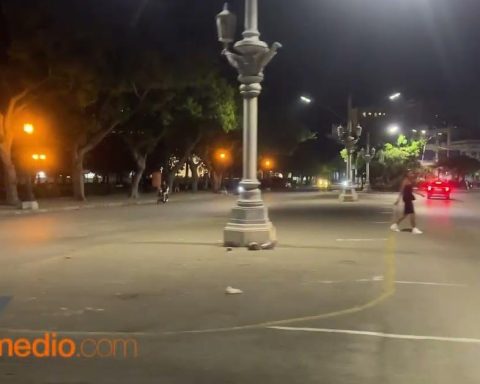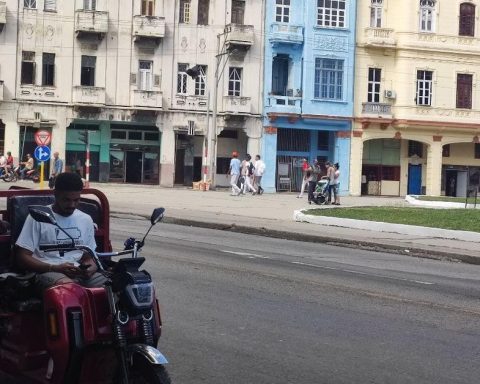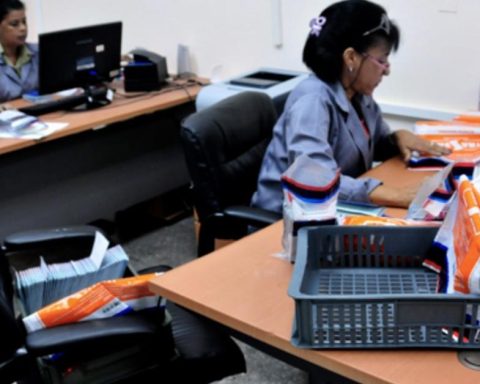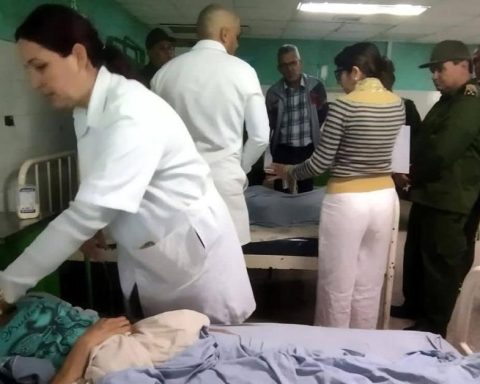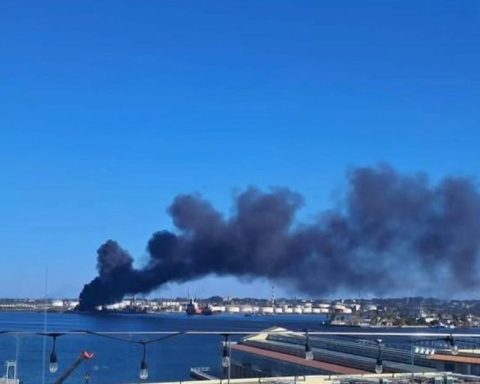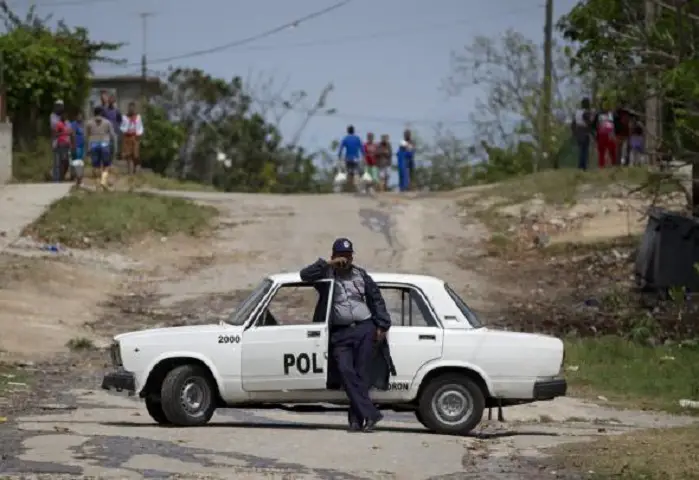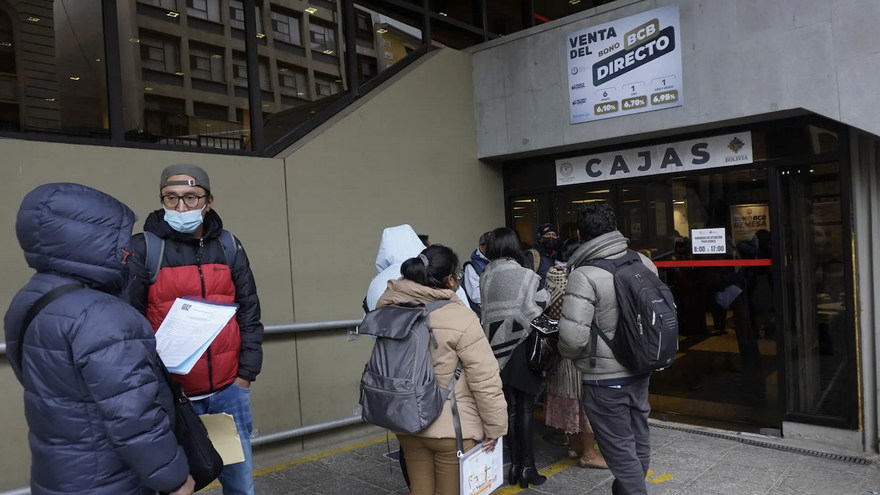
The mismanagement that the government of Evo Morales carried out with the enormous benefits of Bolivian natural gas has the country on the brink of a financial abyss, according to the economic agency Bloomberg. As happens to Cubans, although for different reasons, citizens wait for hours to buy –mostly without success– a few dollars that they are running out of state support.
According to the latest data from the Central Bank, the coffers barely have 372 million dollars, money that is enough for two weeks of imports, and the president, Luis Arce, is trying to get Congress to give the green light to the sale of 43 tons of gold.
“Essentially, the country has run out of dollars,” Antonio Saraiva, a Bolivian economist and professor at an Atlanta university, told the agency. “When people see that many people are lining up and spending the night there to keep their position, they all say that this is not a good thing.”
Bloomberg explains that the cause is the zero investment made by Morales in explorations to increase natural gas reserves
Black market sellers, now living in fear of recently increased arrests, say dollars are running out, euros too, and are already selling Chilean and Peruvian currency.
Bloomberg explains that the cause is the null investment made by Morales in explorations to increase natural gas reserves. According to what the outlet recalls, former Venezuelan President Hugo Chávez was the one who encouraged his Bolivian counterpart to nationalize the sector, a source of immense wealth, in the way he had done with oil. La Paz knew how to better manage the economic flow and gave a 180 degree turn to the national economy, which quadrupled its size, and made it possible to improve life expectancy, literacy and poverty rates.
However, by not allocating money to look for more deposits, the reserves only dwindled, to the point that in 2021 Bolivia was an importer of fossil fuels for the first time since 1990, with a deficit of 1,300 million, when in good years exports for this concept they represented half of the country’s total, with 6,000 million dollars.
“Currently, the Bolivian economy is paying the bills for not having made that investment in the aggressive manner that I have been pointing out to you,” Economy and Public Finance Minister Marcelo Montenegro told reporters last month. Arce, who was Morales’s Minister of Economy for most of his term, tries to reverse the situation on the run, the agency follows, but the situation is complicated. For now, he is trying to exploit the development of biofuels, lithium deposits (another of his enormous natural resources, of great importance for the technology industry) and the good price of gas.
The subsidies that the Government has allocated to hydrocarbons to maintain low gasoline prices have skyrocketed, multiplying by six in the last five years
But fear has already spread among the population, after the Central Bank stopped reporting foreign currency reserves in February and began to require the population to make an appointment. on-line to organize queues that, the more they are seen, the more panic they generate, entering a spiral of unknown dimensions.
Bolivians, recalls Bloomberg, left behind the years of hyperinflation, which in 1980 was 20,000% and is now at 2.6%, half that in countries like the US, the UK or Germany. However, everything could suddenly change if the national currency collapses.
Also last year, the interest on the Bolivian debt increased in international markets and hardly any money was received outside of the bond market. The risk premium, moreover, has skyrocketed in recent months and amounts to 1,900 points, compared to less than 600 at the beginning of the year.
Jonathan Fortun, a Bolivian economist at the Institute of International Finance (IIF), regrets that at a time when the hydrocarbons market is on the rise, the country is not able to amortize its enormous natural reserves.
“During the last 18 years, Bolivia’s leftist government has assumed a central role in managing the exploitation and export of these basic products, which makes the contribution of Foreign Direct Investment in the country almost non-existent”, holds.
In his opinion, the subsidies that the Government has allocated to hydrocarbons to maintain low gasoline prices have skyrocketed, multiplying by six in the last five years. “Both the fixing of local gasoline prices and the importation of fuels have taken a toll on the government’s finances, which has begun to devise creative ways to finance this deficit,” he adds.
Fortun reproaches the Government for having widened the fiscal deficit with the aim of maintaining consumption and work, but at the expense of taxation, in addition to maintaining parity, one of the flags of the Movement Toward Socialism (MAS).
“Fiscal pressure, combined with the general strengthening of the dollar (due to global risk) has tested the exchange rate parity. To sustain this parity, the Government has depleted its international reserves. What has been the Government’s response? capital. Local media report that the Central Bank of Bolivia restricts the sale of dollars and local financial institutions limit amounts of operations in foreign currency,” he concludes.
________________________
Collaborate with our work:
The team of 14ymedio He is committed to doing serious journalism that reflects the reality of deep Cuba. Thank you for accompanying us on this long road. We invite you to continue supporting us, but this time becoming a member of our newspaper. Together we can continue transforming journalism in Cuba.
